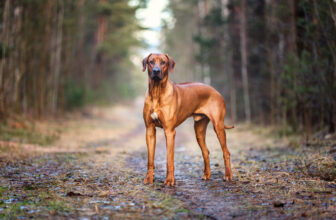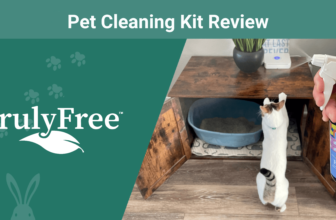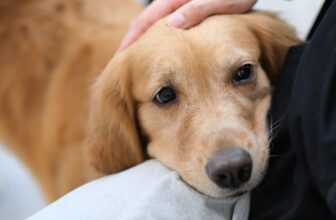Getting a new pup can be an exciting experience but comes with a few challenges. Proper training and nutrition are among the most critical aspects of raising a well-behaved dog. A balanced diet, consistent routines and positive reinforcement training techniques can help you raise a well-behaved pup that continues appropriate behavior into adulthood.
Understand Your Pup’s Behavior
Understanding your puppy’s behavior is vital to building a strong relationship with your new pet. Dogs have natural instincts that compel them to act in specific ways; understanding your puppy’s actions can help you know how to approach training them.
Like their wild ancestors, dogs have certain ingrained instincts and drives, including a prey drive, pack affiliation or protective drive. Dogs are natural hunters and will chase moving objects. They also desire to be a part of a social group and seek companionship. They may bark or growl to deter a threat and protect their territory or pack when threatened.
While these instincts are natural in your pup, they can become problematic without the proper training and socialization. Some of the most common behavioral problems include:
- Separation anxiety
- Aggression
- Excessive barking
- Chewing
- Digging
- Not being housebroken
Techniques for Preventing Common Behavioral Problems in Puppies
Puppies are curious, energetic, and still learning how to behave, so set them up for success with the right training from the moment you bring them home. The following techniques can help prevent common behavioral problems in young dogs, ensuring a happy and well-behaved pup.
Separation Anxiety
Separation anxiety often leads to destructive behavior and excessive barking. To deal with this, leave the dog alone for short periods and gradually increase the time you are away each time you leave. Placing an item with your scent, such as a shirt or blanket in their crate or bed, can comfort your pup while you’re away.
Destructive Chewing
Provide chew toys and give them lots of exercise to stop them from chewing things. Supervise your dog when possible and correct any inappropriate chewing behavior immediately. Offer a firm “no” and redirect them to an appropriate chew toy.
Housebreaking Issues
Many pups have housebreaking issues that can be prevented with proper training. To start, stick with a consistent schedule for dry dog food, playtime and bathroom breaks. Take your puppy outside immediately after meals and naps and praise them when they go potty outside.
Excessive Barking
Dogs can bark excessively for many reasons, including boredom, fear, attention, and protection. Identify the trigger for your dog’s barking and address it directly. For example, if your dog barks at passersby, close the curtains or move them to another room. You can also train your dog to obey a “quiet” command and offer a distraction, such as a toy or treat, to redirect their barking.
Ensure Their Dietary Needs are Met
A well-balanced diet is critical to your pup’s overall health and well-being and can help prevent behavioral issues. Try the following tips and techniques to ensure that your pup’s dietary needs are met:
Choose High-Quality Food
Invest in high-quality, dry and wet dog food appropriate for your pet’s age, breed, and size. Avoid brands that contain fillers, artificial preservatives and additives.
Feed Your Pup at Regular Intervals
Dogs thrive on routine, so feed them at regular intervals. Depending on your puppy’s age and activity level, it may need to be fed several small meals or one or two larger meals throughout the day. Stick to a consistent feeding schedule to help your dog feel more secure and avoid overeating.
Measure Your Pup’s Food
Overfeeding your pup can lead to obesity, which can cause various health problems, including cardiovascular issues and joint strain. Use a measuring cup to ensure you give your pet the appropriate amount of food at each meal. Your vet can provide guidance on how much food your puppy needs based on their age, breed and size.
Provide Plenty of Water
Dogs need plenty of water to stay hydrated and healthy. Ensure your pup has access to clean water and wash their water bowl daily to prevent bacterial buildup.
Offer Healthy Treats
Treats can be a great way to reinforce good behavior, but make sure you’re offering healthy options. Look for treats low in calories and free of artificial flavors, colors and preservatives like freeze dried dog food.
Find Local and Online Training Resources
Finding local and online training resources is essential to ensuring your pup is well-behaved. Training can help your dog learn good behaviors and manners, making them more pleasant to be around and enhancing your relationship with them.
Local resources can include group classes, private training sessions and even behavior specialists. Find a trainer who uses positive reinforcement techniques and has experience working with dogs similar to yours.
Online resources can include video tutorials, webinars, and training apps. Many of these resources can be accessed from the comfort of your home, making them a convenient option for busy pet owners.
When selecting training resources, consider your pet’s needs and temperament. Some dogs may require more specialized training, such as aggression management, while others may benefit from basic obedience training.
Keep Your Household Happy
Understanding and preventing common behavioral problems in pups is key to creating a happy and harmonious household. Consistency, positive reinforcement, and proper training are essential to preventing separation anxiety, destructive chewing and excessive barking.
Remember to be patient and adaptable, as your pup is unique and may require different training techniques. With patience, consistency and proper training, you can help your puppy develop good behaviors and create a loving and happy home for you and your furry companion.







